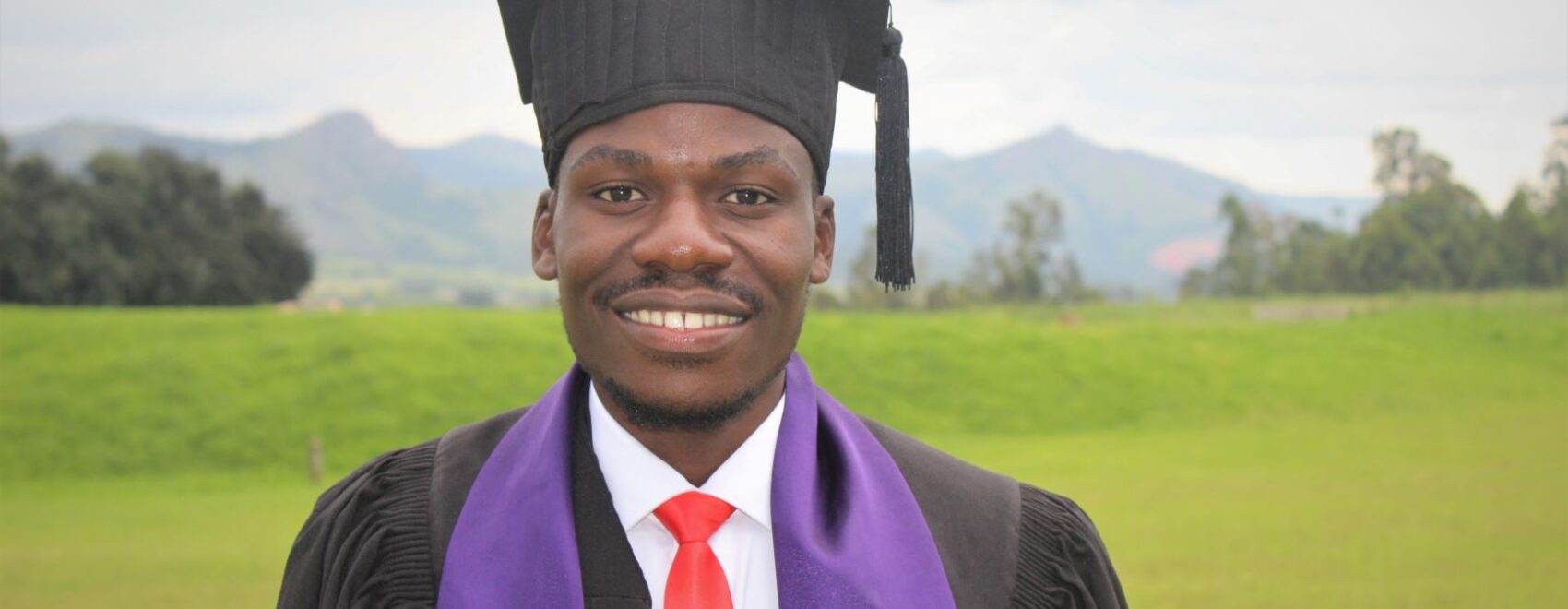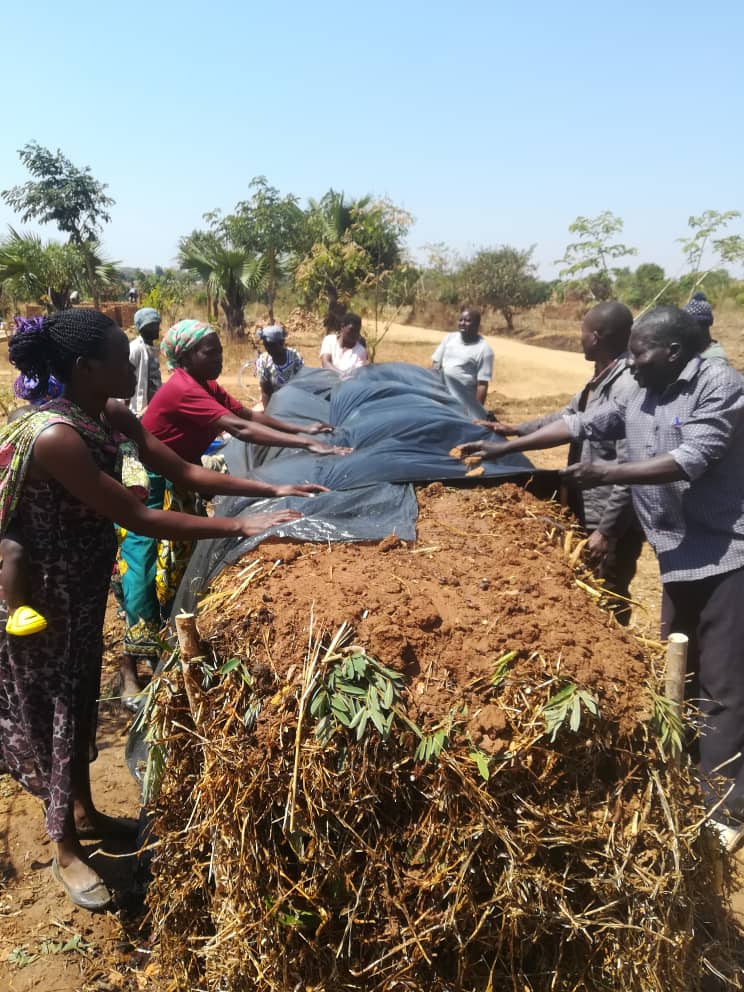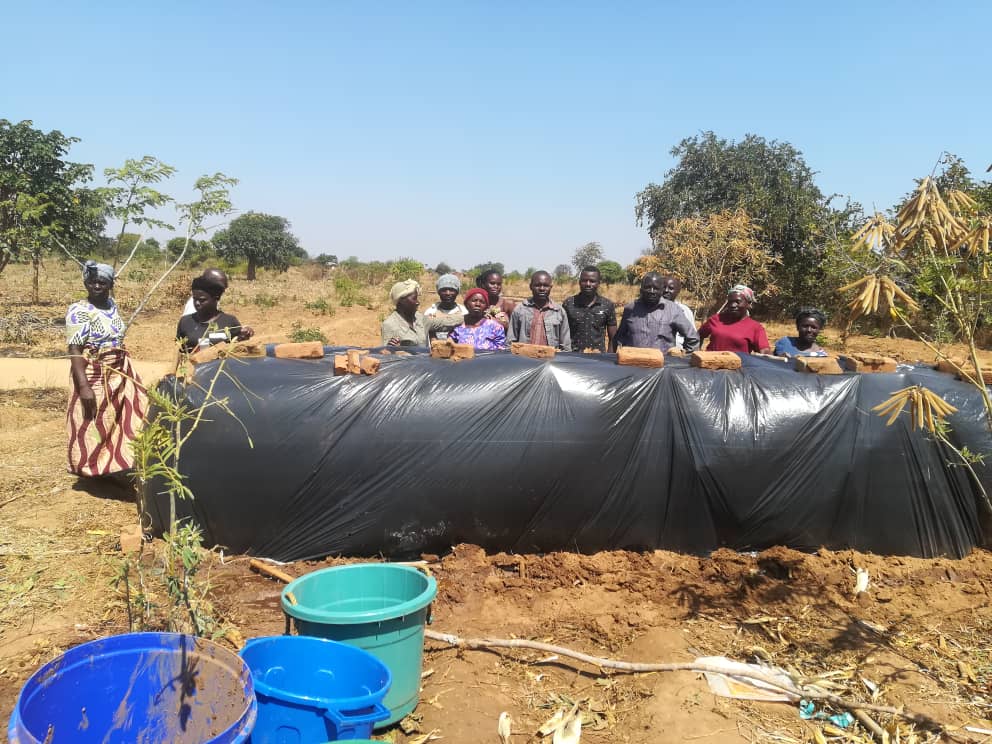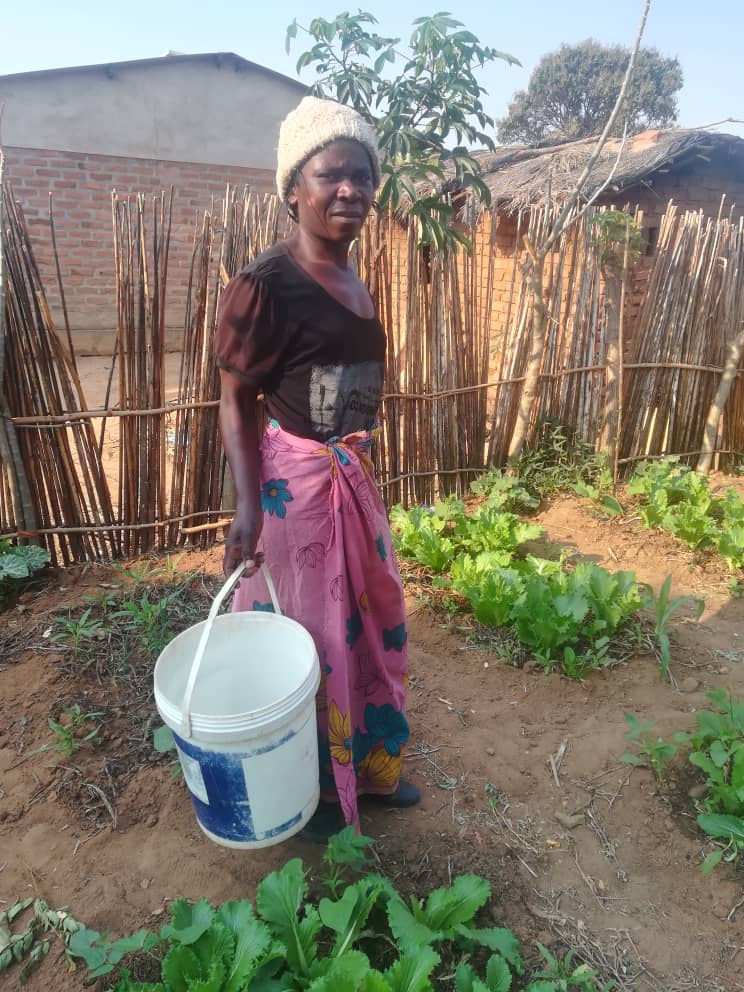Victoria is one of the many Malawians in Ephangweni who rely on farming to provide for their family. It worked well until the sudden massive increase of fertilizer and seedling prices in Africa, a side effect of the war between Russia and Ukraine.
In the absence of good yields, most families find themselves without food, and the situation worsens daily.
But that’s not the case for Victoria because her home is next to a farm operated by Thapson Phiri, a 2020 graduate of African Christian College.
As a student, Thapson paid his way through college by working at Locavore Market. Locavore Market prides itself on adhering to organic and sustainable farming principles for growing and raising its produce. It seeks to provide funding for the college and model good farming practices for students to replicate at home.
Upon returning to Malawi after graduation, Thapson turned his abandoned family land into a farm he named Ezulwini, which means Valley of the Sun in Zulu. In his farming, he employed sustainable and organic methods, substituting the need for expensive fertilizers and pesticides with natural, unconventional methods of enriching the soil and pest management. The methods include composting food remains and crop residue, using manure to fertilize, and controlling pests with garlic, peri peri, orange, and lemon leaves.
Thapson’s success in yielding more without using conventional methods attracted the interest of many farmers in the community. Neighbors like Victoria requested assistance in improving their methods. Upon seeing the need for education, Thapson revised his vision and turned Ezulwini Farms into a field school exhibiting contemporary farming technology for local farmers.
Community members have learned a lot of sustainable farming techniques to solve the problem of inadequate farm inputs. Several weeks ago, Thapson invited Kennedy Mtambo from the Ministry of Agriculture in Malawi to teach the community about using windrows. A windrow is an elongated mound made from compostable and non-compostable material to create compost that enriches the soil and conserves water.
The benefiting members of the Ephangweni community are excited about the progress made in their farming skills. Some are now producing enough to feed their families and sell surplus with limited use of the expensive conventional methods.
Victoria has advanced so much that she now has a semi-permaculture design at her home. She uses the food remains from her house to feed chickens, then harvests chicken manure and utilizes it to grow vegetables in her backyard garden, and has designed several water harvesting techniques. On the other hand, she still manages her maize and soya beans farm with helpful assistance from Ezulwini Farm School.
The community of Ephangweni is blessed with Thapson’s farming skills, and together, they are fighting food insecurity in Africa. Many who have been to African Christian College will agree that learning does not only happen in class but all around campus.




